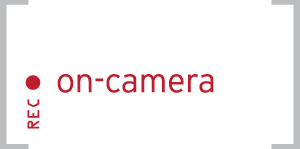No one would argue that confidence is a key component to success in our business. No other profession values it quite the same way as our industry. Over and over you see articles written about how confidence is key to a successful audition and career, and for some actors, an easy confidence just oozes out of them, but for many of us, confidence isn’t our strong suit. Hell, some of us started acting in the first place because we didn’t feel confident (it certainly was in my case).
It can be one thing to know that we need to be confident in our work and another to actually BE confident. So how does one just become confident? I would argue that having confidence is simply a practice, like going to the gym, or meditation, the more often you do it, the easier it becomes and the greater your aptitude. The real question is how do you practice confidence? Well just like meditation, running, or weight lifting, not all at once, but by breaking it down and practicing its component parts.
Trust is a huge aspect of confidence. As actors, we need to trust our instincts when it comes to performance and characterization, but more importantly, we also need to trust ourselves. In my work as an on-camera instructor, I find that I am regularly telling my students to trust in themselves. This is what I mean by that; if an actor simply thinks the thoughts of the character they are playing, or allows themselves to feel the emotions of that character, the audience will see it. By trusting in the fact that they are already interesting and engaging people who do not need to “act” to hold our attention, they are creating a self-fulfilling prophecy, and a real, relaxed and confident performance falls out of them without any effort or work.
However, there are two people in this acting tango, you and the audience, after all, Film and Television is a participatory experience. You cannot possibly trust yourself without also placing trust in the audience. Trust that they will see your thoughts and emotions and will come to you, will interpret those moments for themselves, and ultimately, appreciate and love you for the performance. One trust cannot exist without the other.
Trust begins with a leap of faith, and that can be scary at first, but that is exactly what trust is, a blind faith that you will reach the other side. So trust in the audience, but most importantly trust in yourself. Trust in that fact that you are enough, and already the most interesting person you could ever possibly be, and you will always be right.
